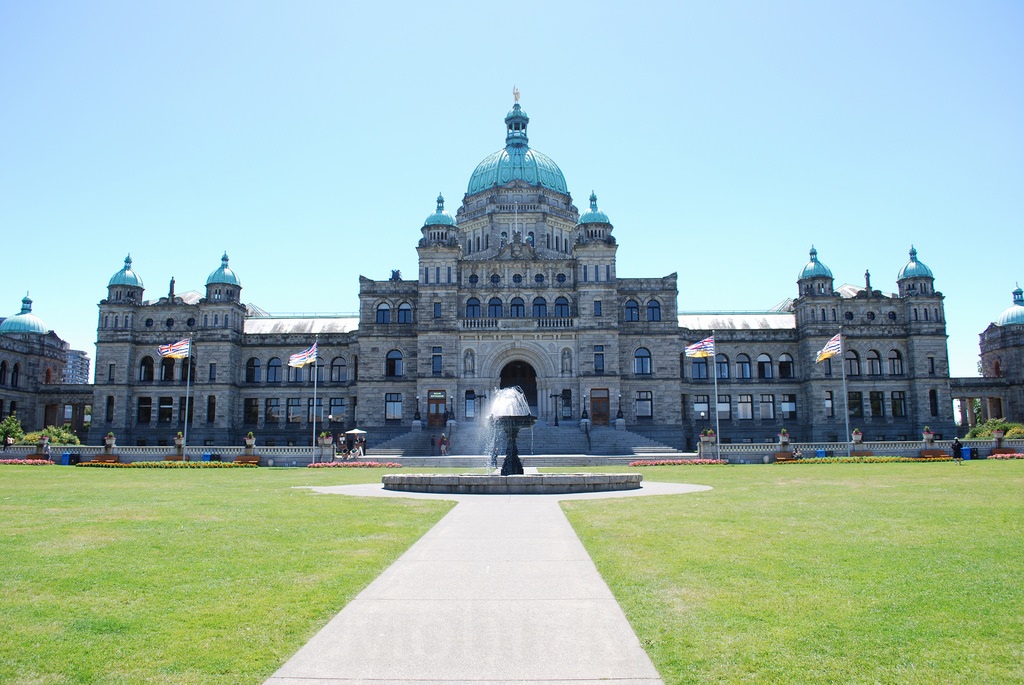A BC Liberal win in Tuesday’s election would mean little hope for significant campaign finance reform, according to Dermod Travis of the nonpartisan watchdog group IntegrityBC.
“They quite like the system as it is, and for obvious reasons,” says Travis. The BC Liberals have raised almost $120 million in donations between 2005 and 2015. In that same time, the NDP raised $42 million.
According to Travis, parties are spending more per capita on B.C.’s provincial election than the Democratic and Republican parties spent in the 2012 U.S. presidential race. “In a way, we’re actually worse than the United States,” he says.
An overwhelming majority of British Columbians believe the current system of unlimited donations has to change. In one poll, 76 per cent of respondents agreed with the statement that the Liberal government is “only interested in helping its political donors and big business.” In another poll by Insights West and the Dogwood Initiative, 86 per cent of respondents said they support bans on corporate and union donations.
Premier Christy Clark has said the BC Liberals would appoint an independent panel to examine campaign financing after the election.
However, Travis says the party is giving the panel four years to report and only plan to enact the recommendations if the legislature votes for them unanimously.
“She’s always very good at hiding the fine print,” Travis says.
F. Leslie Seidle of the Institute for Research on Public Policy has studied the history of campaign finance reform in Canada and the U.S., looking to find when and why governing parties decide to make changes.
In many cases, Seidle says parties have enacted campaign finance reform out of self-interest. For instance, in the face of rising election costs, Pierre Trudeau’s Liberal government set federal contribution and spending limits in 1973.
“The main reason why spending limits were put in was because the political parties were facing the rising cost of TV advertising,” says Seidle.
Following the federal reforms, most provinces followed suit and enacted their own spending and contribution limits.
“Once there were two models in the country, particularly the federal model, I think it’s fair to say it became part of the Canadian political culture,” says Seidle. Four provinces, B.C, Saskatchewan, PEI, and Newfoundland-Labrador, have yet to introduce some limits on political contributions.
Seidle doubts the BC Liberals would see significant reform in their own self-interest. “It seems as though the Liberals have made a calculation that it is in their interest to keep on receiving these large contributions,” he says.
Seidle also notes that major scandals linked to political donations have sometimes forced reforms.
However, the links between big political contributions and special treatment by governments are usually not so obvious. “The term is undue influence, but it’s not always easy to prove,” says Seidle. “You can’t necessarily conclude that A caused B, but if you put A against B, people can draw some dotted lines... In many cases, they are probably right,” he says.
Seidle wonders if BC Liberals donations are already becoming scandalous in the eyes of the public, noting the increased concern over campaign finance this election.
“Scandal is in the eye of the beholder, in a way,” he says. “For some people, they would consider the ongoing funding of the Liberal party to be scandalous.”
Travis tracked 177 donors who account for $55 million of the $120 million the BC Liberals raised between 2005 and 2015 and connected them with government decisions.
“I can link each of them to government supplier payments, government transfers, government grants, government incentives, infrastructure projects in excess of $15 billion,” Travis says.
For instance, Travis says, the Liberals granted Kinder Morgan environmental clearance for its Trans Mountain pipeline after the company donated more than $700,000 to the party. Imperial Metals, another major donor, did not face fines or penalties after the Mount Polley mine disaster.
“It’s gotten so bad that I don’t think they’re ashamed of it any longer,” says Travis.
Seidle is slightly more hopeful than Travis that a BC Liberal win could still mean some changes to contribution rules. However, he says British Columbians should watch any BC Liberal initiatives closely to see if their proposed contribution limits are too high.
If the BC Liberals, or any other party, are serious about significant campaign finance reform, Seidle says it should not be difficult to come up with a system.
“This is not rocket science. They can look at the federal model, and more-or-less copy it. As some of the other provinces have done,” he says.
Read more: BC Election 2017, BC Politics


















Tyee Commenting Guidelines
Comments that violate guidelines risk being deleted, and violations may result in a temporary or permanent user ban. Maintain the spirit of good conversation to stay in the discussion.
*Please note The Tyee is not a forum for spreading misinformation about COVID-19, denying its existence or minimizing its risk to public health.
Do:
Do not: